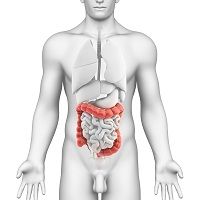Article
Important Genotype Study Suggests an Amended Definition for IBD
Author(s):
Study authors say the results suggest a continuum of disorders with inflammatory bowel disease (IBD), and propose a new definition of IBD that includes three distinct subgroups.

A large genotype association study published in The Lancet adds significantly to the current understanding of the biological relations between the related but different types of inflammatory bowel disease (IBD).
According to the researchers, “Our data support a continuum of disorders within inflammatory bowel disease, much better explained by three groups (ileal Crohn’s disease, colonic Crohn’s disease, and ulcerative colitis) than by Crohn’s disease and ulcerative colitis as currently defined.”
The study included almost 20,000 Crohn’s patients and nearly 15,000 patients with ulcerative colitis, from 49 health centers and 16 different countries in Europe, North America, and Australasia.
The study authors tested for genotype—phenotype associations across 156,154 genetic variants. “We generated genetic risk scores by combining information from all known inflammatory bowel disease associations to summarize the total load of genetic risk for a particular phenotype,” the researchers explained. “We used these risk scores to test the hypothesis that colonic Crohn’s disease, ileal Crohn’s disease, and ulcerative colitis are all genetically distinct from each other, and to attempt to identify patients with a mismatch between clinical diagnosis and genetic risk profile.”
Among the important findings of the study:
- Little or no genetic association with disease behavior (which changed dramatically over time) remained after conditioning on disease location and age at onset.
- The genetic risk score representing all known risk alleles for inflammatory bowel disease showed strong association with disease subphenotype.
- Predictive models based on the genetic risk score strongly distinguished colonic from ileal Crohn’s disease.
- The genetic risk score could also identify a small number of patients with discrepant genetic risk profiles who were significantly more likely to have a revised diagnosis after follow-up (p=6.8×10-4).
Redefining the conditions is clinically important, because while molecular studies have suggested that ileal and colonic Crohn's disease are distinct, current recommendations do not advocate the use of these established markers in making treatment decisions, nor for choosing patients for clinical trials.
And there are treatment implications as well. For example, more than 50% of patients with Crohn’s disease need surgery within 10 years of diagnosis, but up to 50% of patients with ulcerative colitis and 30% with Crohn’s disease will have a fairly indolent disease course without the need for immunosuppression or surgery.
“Established genetic factors can only explain a small fraction of the variability in subphenotype of inflammatory bowel disease, but genetic risk scores that capture all this information could be used to identify misdiagnosed patients,” the researchers conclude. “Future translational and clinical research should move away from a binary classification of inflammatory bowel disease into ulcerative colitis and Crohn’s disease, instead considering ileal and colonic Crohn’s disease as separate disease entities.”





